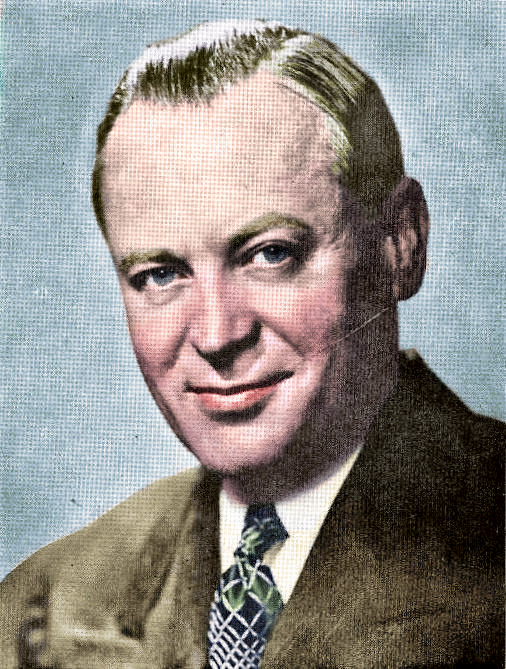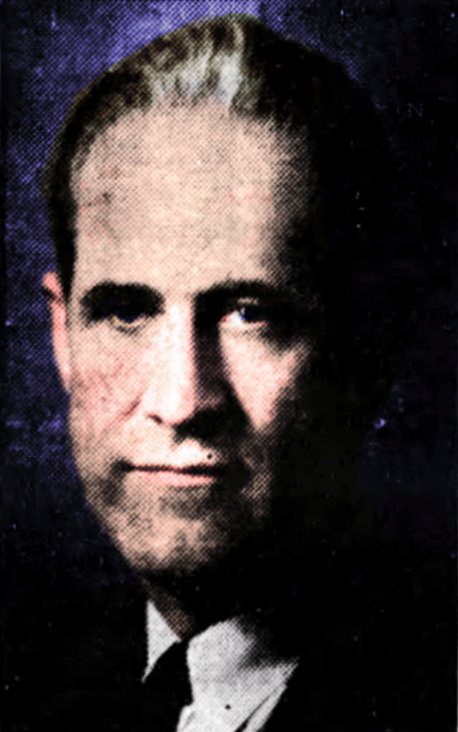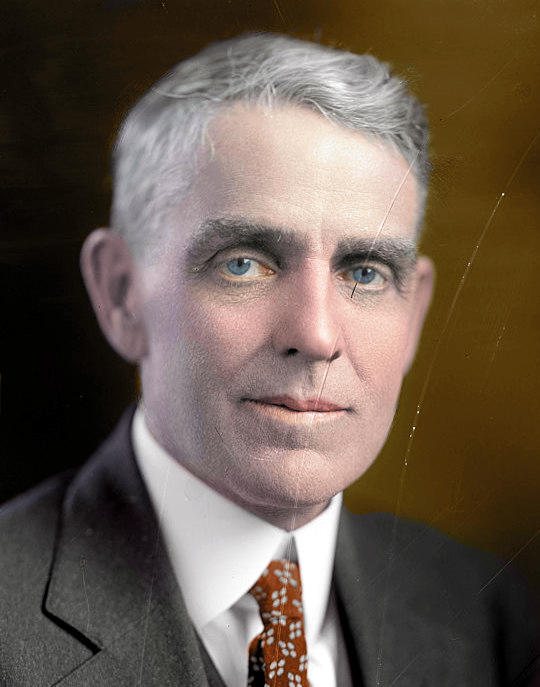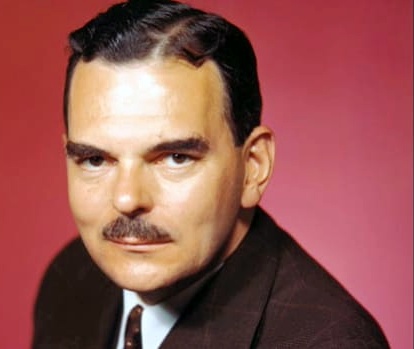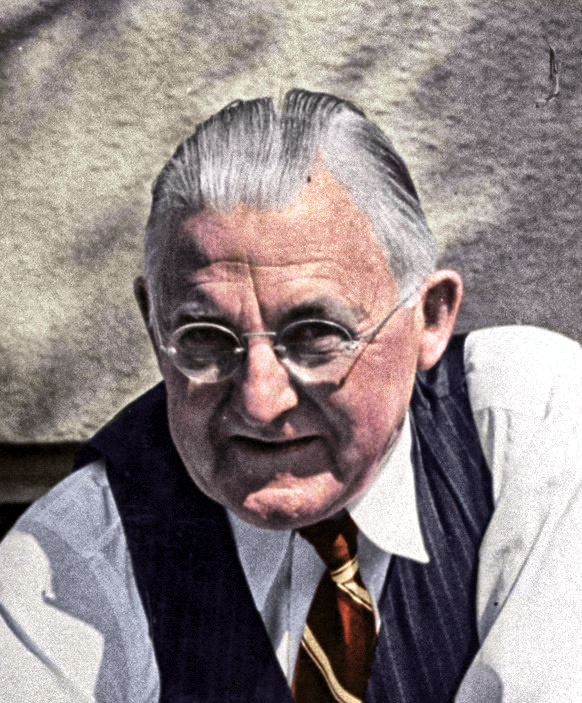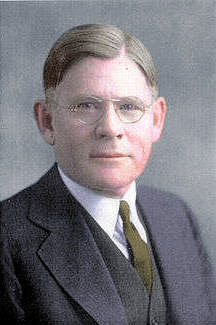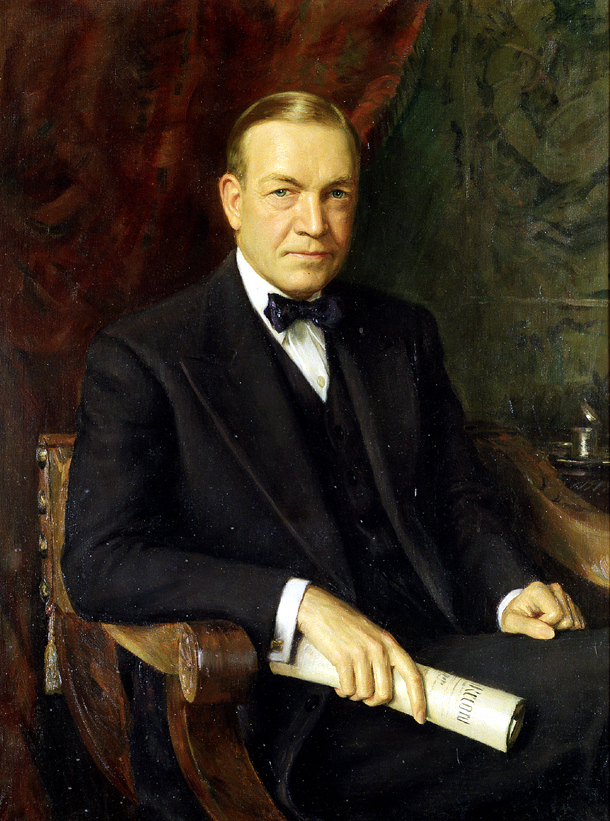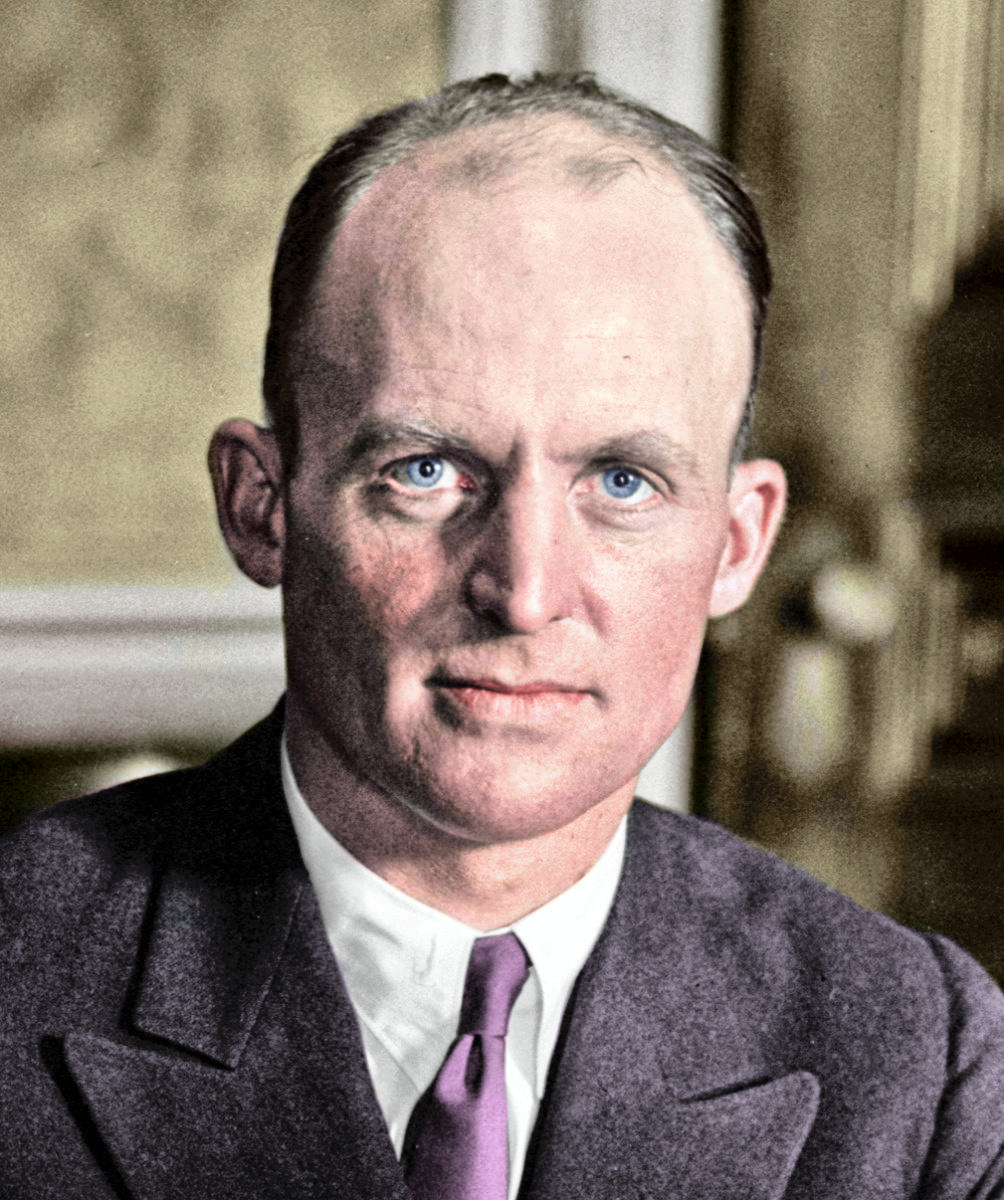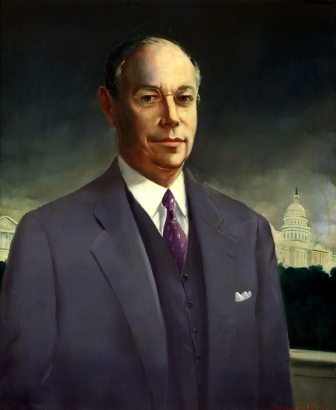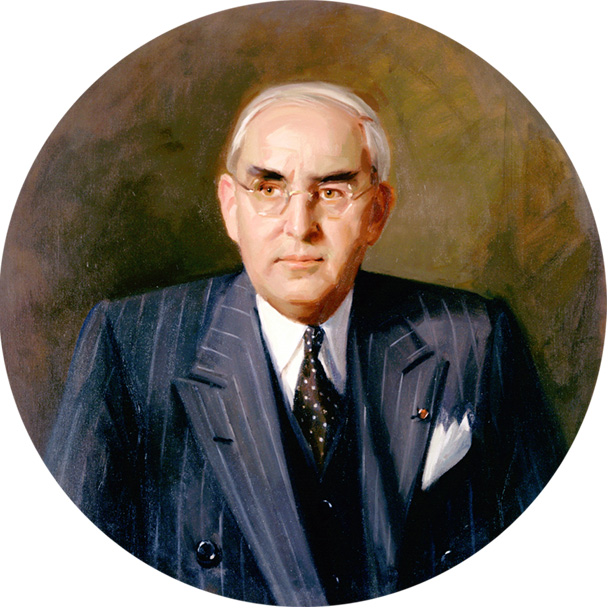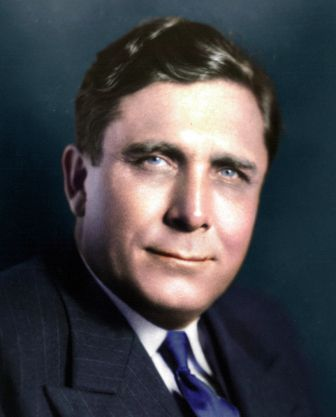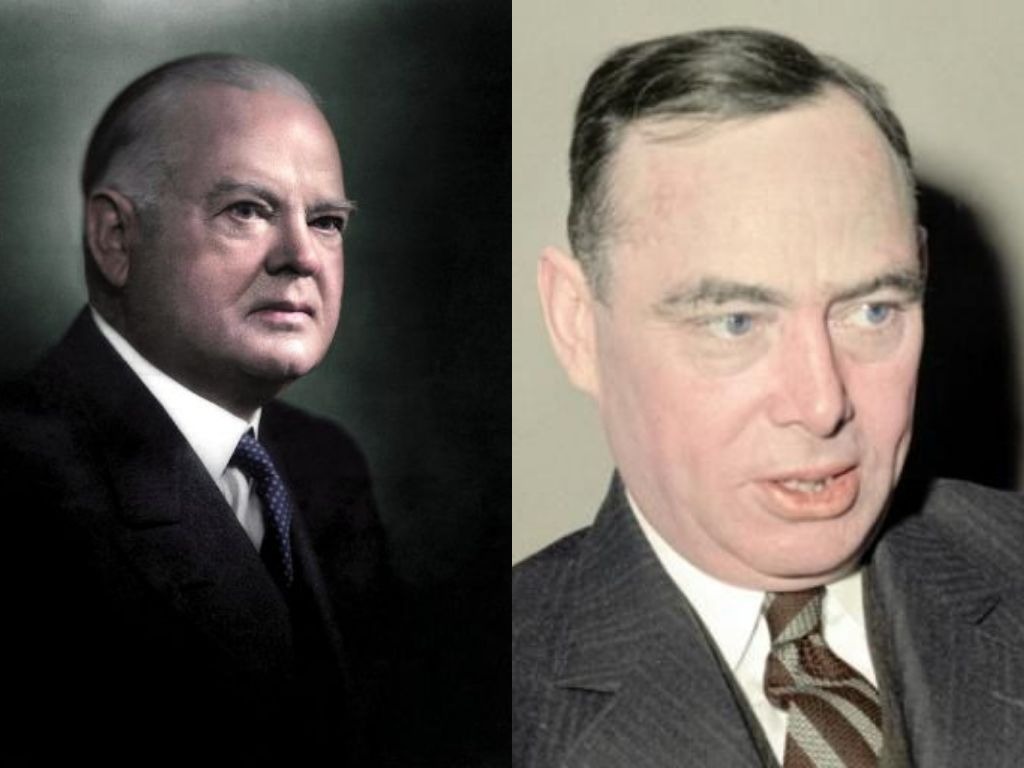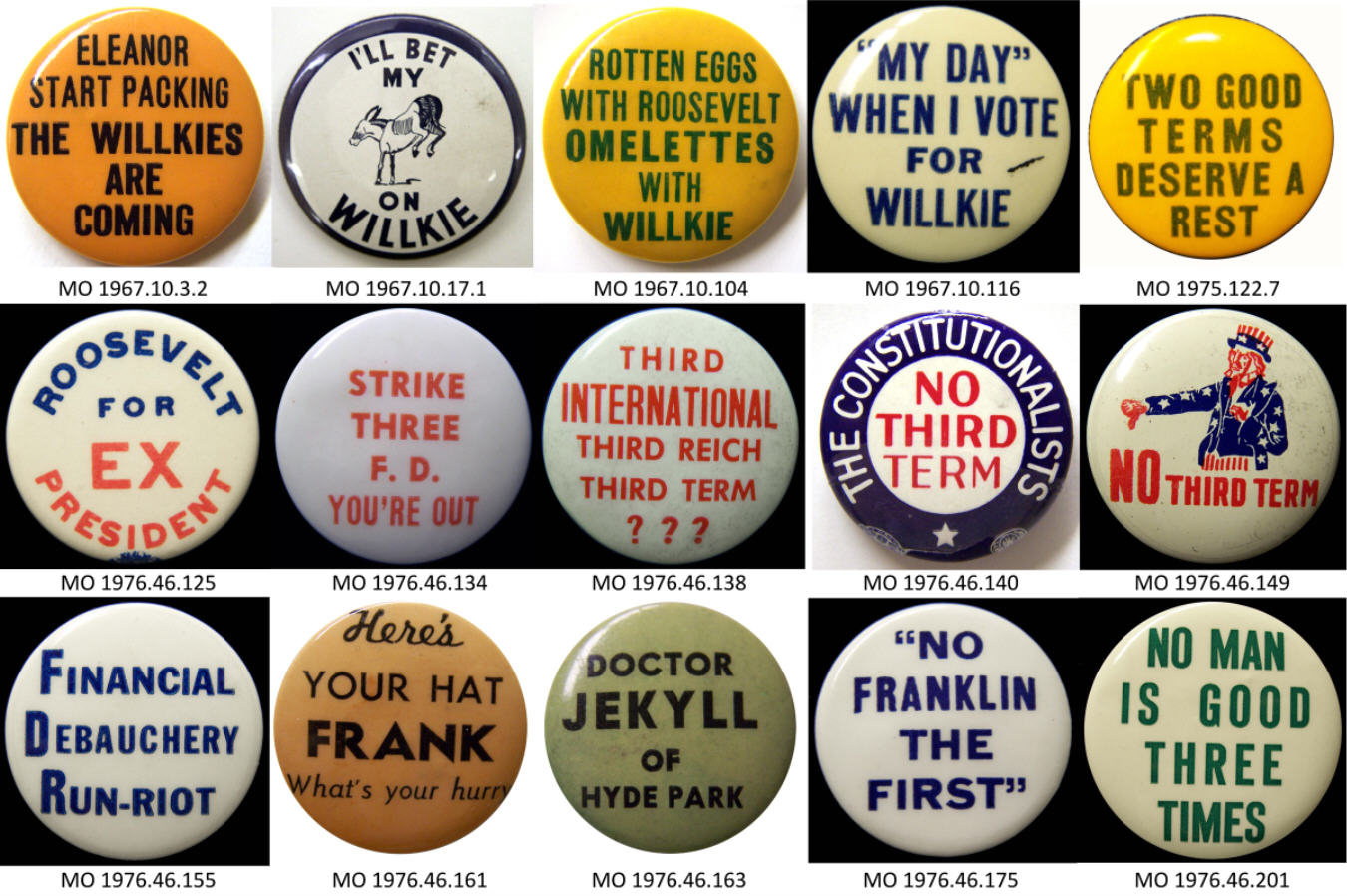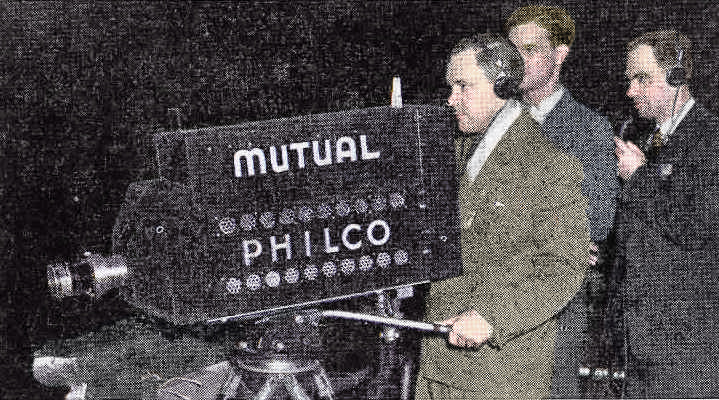
DISCLAIMER:
I know that I am way too late (I was busy with the colorization and there’s another reason which lies in the last article of the very last post) - but leaving that out of the way, here’s what happened at the RNC '40 from June 24 to 28, 1940. I’ll make similar posts about the DNC '40 as soon as possible.
Indy talked about the results of this convention back in Ep. 44 - Hitler
Paris (6-29-40), but here’s the entire story of what happened at the convention itself.
This collection of posts is made in the context of the times (spot the differences in writing style). I also included the Republican Party Platform of 1940 in its entirety not only for the sake of immersion, but also to help understand the political goals and ambitions of the G.O.P. at the time. I used newspaper reports from Jun/Jul 1940 to tell the story (Hint - read the last news article for the “other reason”). I will also be adding a few more pictures and articles in this post to spice it up a bit, so expect a lot of edits.
I know this is a very long topic (trust me, it’ll be the same case for the DNC), but members of the TimeGhost Army and others could easily take the time to read through the entire thing and hopefully create further understanding of the situation among the Republicans in a world at war.
To be or not to be, that is the question.
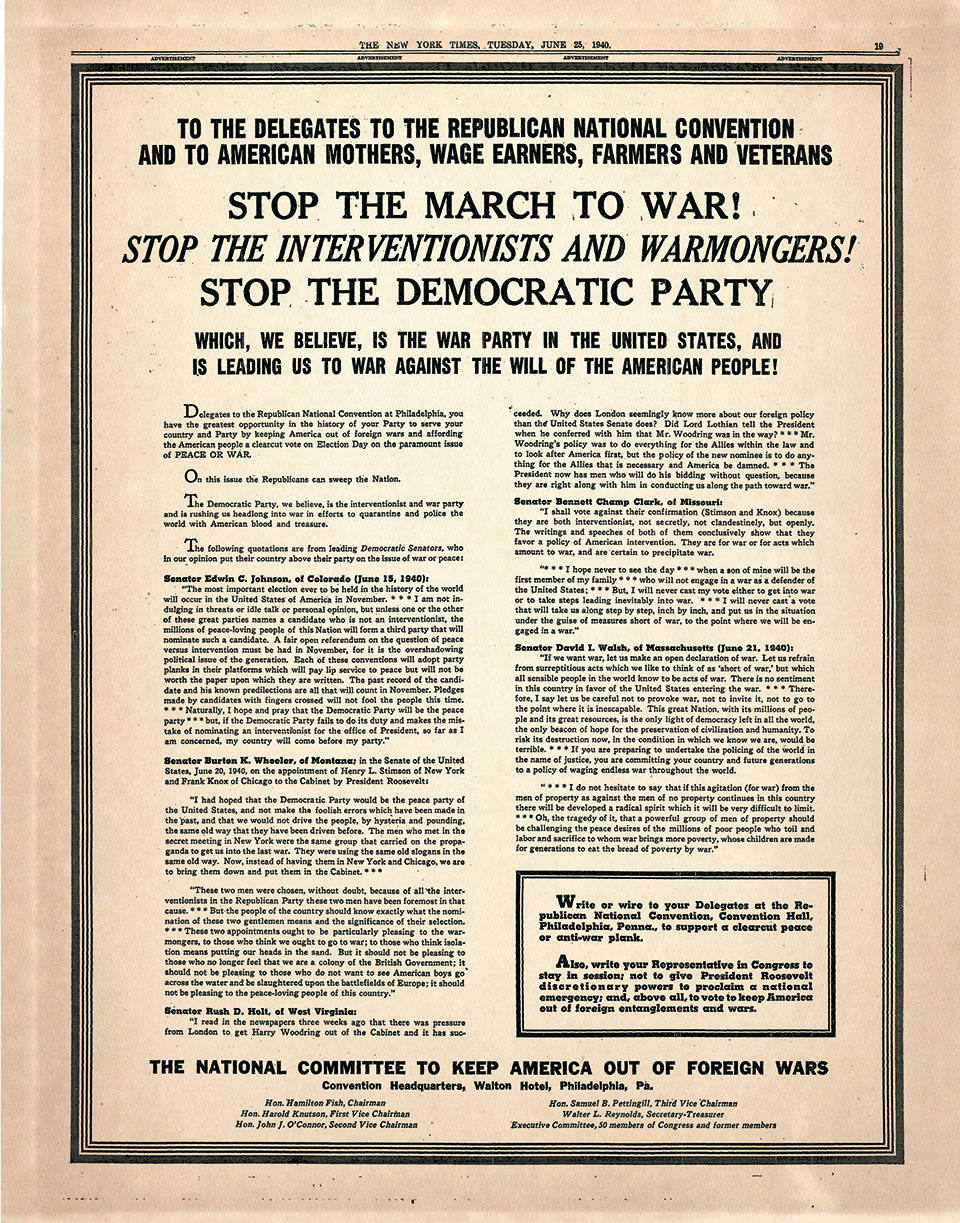
Venue: Philadelphia Convention Hall, Philadelphia, Pennsylvania.
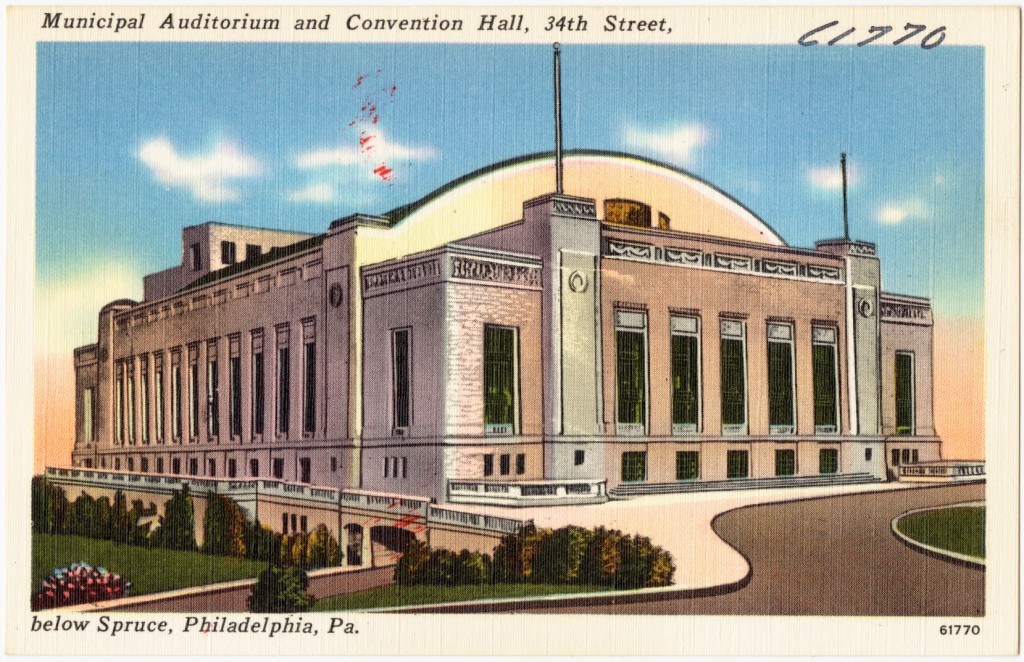
The candidates:
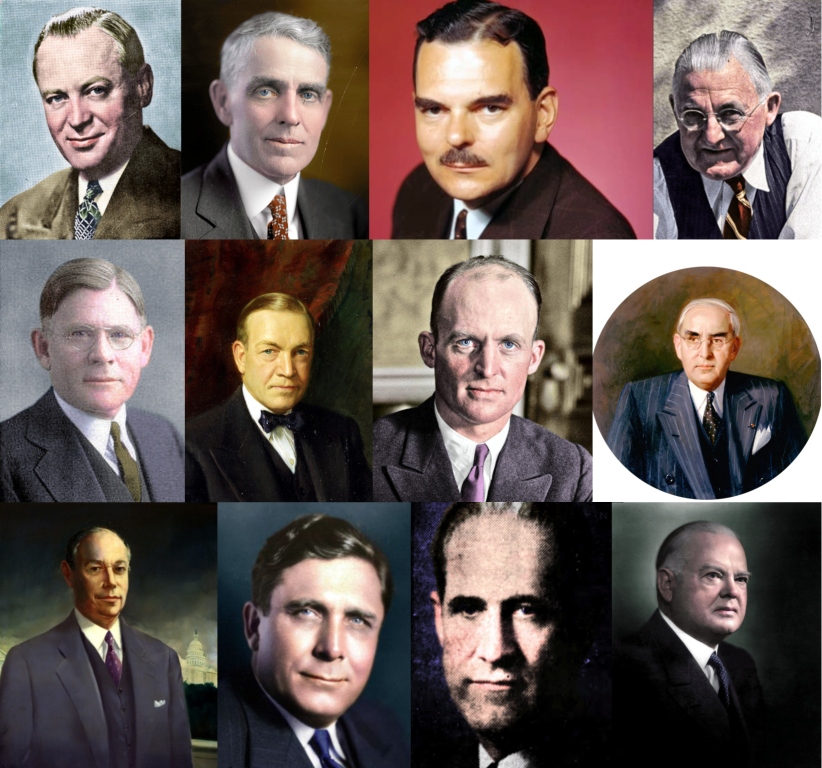
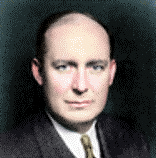
Chairman (en) of the Republican National Committee:
John Daniel Miller Hamilton (KS), 1936-40
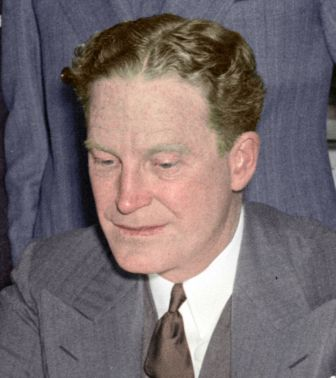
Rep. Joseph William Martin, Jr. (MA), 1940-
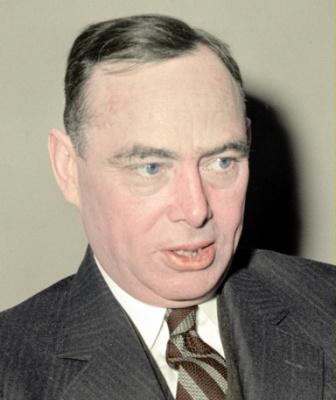
Lewiston Evening Journal (June 24, 1940)
CONVENTION PROGRAM
Philadelphia (AP) –Here is the program for the Republican National Convention:
Today
- Call to order at 10 a.m. (EST).
- Singing of “America.”
- Prayer, the Rev. Albert J. McCartney of Washington.
- Welcoming address, Mayor Robert E. Lamberton of Philadelphia.
- Roll call, election of temporary officers, selection of committees.
- Recess until 8 p.m. (EST).
- Prayer, Dennis Cardinal Dougherty of Philadelphia.
- Singing of “Ballad for America.”
- Keynote address, Gov. Harold E. Stassen of Minnesota.
Tuesday
- Call to order at 10 a.m. (EST)
- Prayer by the Rev. Dr. Paul H. Andreen, Lutheran Church of Cokato, Minn.
- Singing of the national anthem.
- Report of credentials committee.
- Address by Permanent Committee Chairman, Rep. Joseph W. Martin Jr. of Massachusetts.
- Recess to 7:45 p.m.
- Prayer by Bishop John Andrew Gregg of Kansas City.
- Singing of “God Bless America.”
- Address by former President Herbert Hoover.
Wednesday
- Call to order at 1 p.m. (EST)
- Prayer by Rabbi Michael Aaronsohn of Cincinnati.
- Report of Resolutions Committee and adoption of platform.
- Nominating and seconding speeches for presidential candidates.
Thursday
- Call to order at 9 a.m. (EST)
- Prayer
- Nominating and seconding speeches for six more presidential aspirants.
- Balloting on presidential nominations until one candidate gets 501 of the 1,000 votes.
The Gettysburg Times (June 24, 1940)
Republicans Open National Convention
Convention Hall, Philadelphia, June 24 (AP) –
The 22nd quadrennial national convention of the Republican Party, called to nominate a 1940 presidential ticket and adopt a platform, was rapped to order at 10:43 (EST) today by National Chairman John D. Hamilton.
Philadelphia, June 24 (AP) –
Support for Wendell Willkie for the presidential nomination developed today among delegates from five western Pennsylvania counties, but the entire state delegation, at a caucus an hour later, unanimously adopted a resolution to back Governor Arthur H. James as long as he has a chance.
The big hall was still filled with the noise of delegates pushing through crowded aisles to locate marked seats by state standards. Many simply stood and talked. And a band from a stand in a niche high up near the roof drew down splashes of music. Few gallery seats were filled and many whole sections of the gallery tiers held no spectators.
Delegates Serious
Even the stir of ambitious candidates, however, did not entirely wipe out the serious mien which delegates brought into their convention hall. The impact of the wars abroad had made itself felt not only upon the leaders, worried over a platform, but upon the rank and file of delegates.
Some of the delegates wore red carnations, the Taft emblem. Supporters of Dewey, Willkie and a half dozen other aspirants also were early arrivals.
Senator Bridges, of New Hampshire, one of these candidates, pushed his way through to the press stand to inquire about the latest from the European war front.
The first gavel crack came at 10:17 a.m. (EST). Chairman John Hamilton ordered delegates to be seated and instructed the sergeant at arms to clear the aisles. Few paid any attention. Looking over the confused scene, Hamilton laid down the gavel and marched back to find a seat.
Landon Gets Ovation
Alf M. Landon, 1936 nominee, was given an ovation by the Oklahoma delegation as he walked up the aisle to the Kansas section. One delegate shouted: “You’re liable to be the nominee before we get out of here.”
It quickly developed that an important battle of the convention would be a contest between the air-conditioning system and a heat-dispensing battery of lights suspended above the middle of the hall. Beaded brows gave early indication that the lights would win. The noise of bands seemed to join on the side of the lights.
The convention convened three quarters of an hour late after Hamilton finally obtained order and asked the entire audience to rise while they sang “America” to the accompaniment of a piano.
Welcome by Mayor
The assemblage remained standing while the Rev. Albert Joseph McCartney, pastor of the Covenant First Presbyterian church of Washington, D.C., prayed that a “spirit of charity” preside over the convention and that it be dedicated “anew upon the altar of our nation’s welfare.”
Mayor Robert E. Lamberton welcomed the convention to Philadelphia. He told the delegates that “from a political viewpoint,” they would “be among friends.”
“The city,” Lamberton said, “has not elected a Democratic mayor within my memory and Pennsylvania in that time has elected a Democratic governor but once.”
Keynote Address Tonight
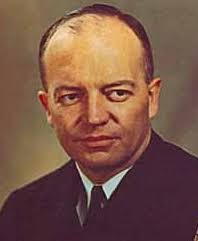
The convention rushed through the routine formalities of approving the temporary roll of delegates and electing temporary officers, including Gov. Harold E. Stassen of Minnesota, as temporary chairman and keynote speaker. Stassen’s keynote address will be heard at tonight’s session.
One by one, Hamilton recognized a series of delegates to offer the routine motions creating the various standing committees – on credentials, permanent organization, rules and order of business, and resolutions.
Mrs. Alice Roosevelt Longworth, tall, smiling broadly, attired in black, offered one. Bridges became the first candidate whose name was mentioned in the convention when he was called to his feet to offer another.
When a recess was taken at 11:29 a.m. (EST), until tonight’s session at 8:30 p.m., when the keynote address will be heard. the horseshoe-shaped galleries still were only half-filled.
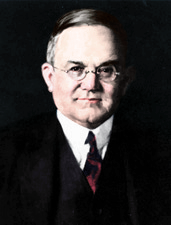
While the convention was in session, former Senator Daniel O. Hastings, of Delaware, called on Willkie downtown and afterward told reporters the utilities executive would have “100 or more” votes on the first ballot. He said three of Delaware’s six delegates would be Willkie’s on the first.
At Least 10 Candidates
Philadelphia, June 24 (AP) –
As the Republican National Convention opened today indications were that the names of at least 10 presidential candidates would be presented when nominations are made Wednesday afternoon.
All 10 are already in Philadelphia. Each of them either has announced his candidacy or has some delegates pledged to him. Here they are:
Senator Styles Bridges, of New Hampshire; Senator Arthur Capper, of Kansas; District Attorney Thomas E. Dewey, of New York; Frank E. Gannett, New York newspaper publisher; Governor Arthur H. James, of Pennsylvania; Senator Charles L. McNary, of Oregon; Hanford MacNider, of Iowa; Senator Arthur H. Vandenberg, of Michigan, and Wendell L. Willkie, of New York.
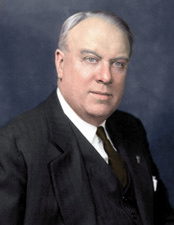
Governor Raymond E. Baldwin, Connecticut’s favorite son, announced here Sunday night he would second the nomination of Willkie and it was indicated he would not be placed in nomination. Another holder of delegates who will not be nominated was State Senator J. Emmett Seawell, of California. His state delegation was pledged to him only to fulfill California requirements that delegates be pledged nominally to a particular candidate.
Women Take Prominent Part In Convention
Philadelphia, June 24 (AP) –
Unashamed shines decorated patrician noses today as Republican women buttonholed national convention delegates in the final hours before the big test: The first ballot on the presidential nomination.
Mrs. Ruth Hanna McCormick Simms followed the pattern of her president-maker father, Mark Hanna. She let her candidate, Thomas Dewey, of New York, take on all corners in a hotel ballroom reception while she held down a little back hall corner, whispering tensely to a chosen few delegates, many of them sons of the men who worked with her father.
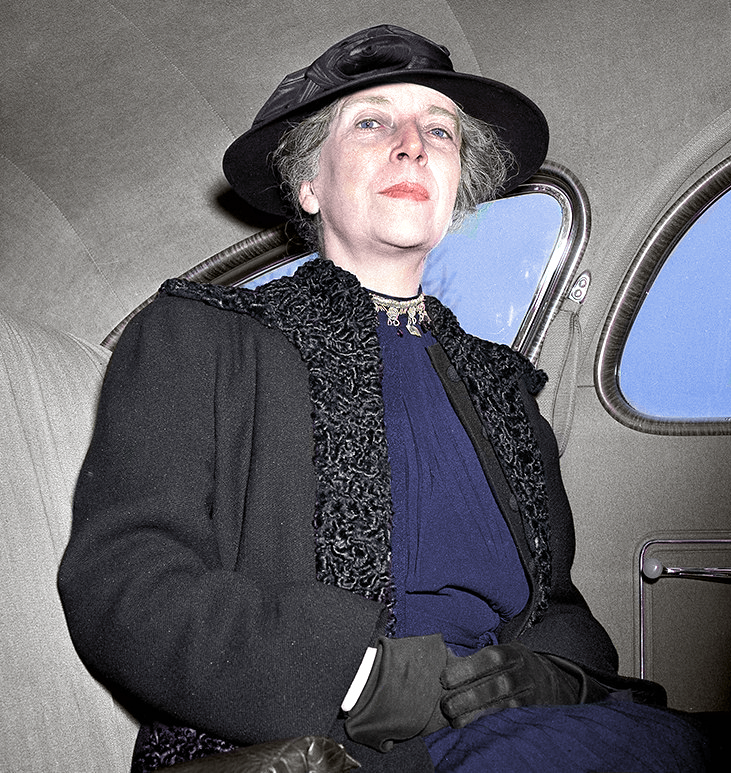
Her closest friend – Mrs. Alice Roosevelt Longworth – held other whispering conferences five blocks away in Senator Robert A. Taft’s headquarters. Working harder for Taft than ever, she told reporters:
“I’m against intervention in Europe. Sales to the allies are all right. We’re acting legally under international law.”
She was off in a rush. She had seen a delegate.
Mrs. Taft, the senator’s wife, is the only woman here who has held a formal press conference. One questioner asked why she thinks her husband should be President.
Mrs. Taft had a ready answer: “His brains, character and experience.”
Little blonde Mrs. Wendell Willkie arrived just in time Sunday to perspire under the klieg-lights with her husband at “What-a-man-Willkie” mass meeting. She waved her white gloved hand good-naturedly to the crowd.
Back of the scenes a widely known Republican woman – Mrs. Worthington Scranton, of Scranton, Pa. – played the part of “America’s Hostess No. One,” as she is billed at the Republican headquarters. It is her duty to keep wives and women delegates happy with teas, cocktails, and luncheons. She has a thousand women helping her.
Just in case Mrs. Scranton’s committee fails to reach everyone, the Taft women’s division has set up a two-hour daily bridge session. The women will be lectured on leading through their partner’s hand while their husband’s struggle with national and world problems.
More Convention News (6-24-40) –
The gadget-minded visitor to the Republican National Convention could have a field-day on a round of candidates’ headquarters. He could get a long Indian feather at the Dewey camp; a red carnation at the Taft camp; a red-white-and-blue “We Want Willkie” button, and a “Get on the Van Wagon” button from the Vandenburg headquarters, and so on down the line. Some cautious delegates are reported to have one of each – just in case.
Philadelphia youngsters have developed a new racket – taking fistfuls of lapel insignia from candidates’ headquarters and peddling them on the streets at a penny apiece.
President Roosevelt spent 35 minutes in Philadelphia the Republican convention city, today on his special train en route from Hyde Park back to Washington. Railroad employees said the President apparently remained asleep.
An active behind-the-scenes group of workers at the convention are the Young Republicans of Pennsylvania. More than 250 from throughout the state are serving as sergeants-at-arms, messenger boys and helpers-in-general. The president, Frank C. Hilton, of Berks County, says they are solidly behind Governor James for President.
The Gettysburg Times (June 25, 1940)
CHAIRMAN URGES G.O.P. TO RALLY AGAINST “ABSOLUTISM”
Convention Hall, Philadelphia, June 25 (AP) –
Representative Joseph W. Martin, of Massachusetts, took command of the Republican convention today and called upon his party to rally against “a steady drift toward governmental absolutism.”
A convention torn by the conflict of opposing candidates cheered wildly as the blunt New Englander took up the gavel to pound the way to a platform decision and a presidential candidate.
The nomination fight tightened with a statement from Thomas E. Dewey’s manager and from former Gov. Henry J. Allen, of Kansas, denying delegates were falling away from Dewey and with Wendell Willkie moving from delegation to delegation in a personal effort to counter “Stop Willkie” talk.
Headquarters of Frank E. Gannett, New York publisher, claimed a bloc of 25 votes, after early balloting for Hanford MacNider, of Iowa, from Wisconsin, Minnesota, Iowa, North Dakota and South Dakota.
The supporters of Senator Taft, of Ohio, had in no way slowed their drive. Each delegate found a Taft carnation in his seat this morning when he came to the hall.
‘Impressed’ by James
Philadelphia, June 25 (AP) –One of the largest southern delegations to the Republican National Convention – the 23-member North Carolina group – visited Governor Arthur H. James at his hotel suite today and a spokesman said later the delegates were “very favorably impressed” with Pennsylvania’s chief executive. Collin G. Spencer, of Carthage, North Carolina, emphasized that the delegation is “entirely unpledged and open minded” but added: “Governor James has retrieved the heart of the Republican Party in Pennsylvania. Our delegation feels very kindly toward him.”
Downtown, evidences of controversy in drafting the 1940 platform, centered on the important foreign policy plank, developed when Chairman Herbert K. Hyde announced his resolutions committee would be unable to report to the convention tonight.
Martin told the convention that every ideal of Americanism was imperiled by those who would make the government and nation tools to be manipulated by one man at the head of an unelected political bureaucracy.
The convention, he said, should rally all patriots to a crusade for Americanism.
“For seven anxious years we have seen this march toward one man government,” the stocky chairman said. “The record is a somber story of failure and futility and broken promises.”
“We want America at peace with the world: an America untainted by hatreds and fears.”
“We must preserve our country from the schemes and treachery of those unsympathetic to our constitutional republic and who would destroy it.”
Hoover to Speak
Many important officials of the Hoover administration are on the scene, and the former President arrives late today to deliver a convention speech at 8:30 p.m. (EST) which his advocates hope will touch off a burst of enthusiasm and take him into the nomination.
Mr. Hoover’s address, expected to deal primarily with foreign policy, will be the third big one of the convention.
Opportunity for the second was provided this morning by the induction of Rep. Joseph Martin, of Massachusetts, as permanent chairman. The first was Governor Stassen’s keynote Monday night.
The 33-year-old Minnesotan told the crowded convention hall that these times call for a frank approach to problems if democracy is to live.
“We must have a united people with each citizen willing to make sacrifices and ready to stand shoulder to shoulder in the interests of national defense,” he said.
The audience gave loud applause when he termed the cabinet nomination of Henry L. Stimson and Frank Knox, prominent Republicans, “a politically timed appointment on the eve of this convention” and one by which “the President made an eleventh hour confession of failure in his national defense administration.”
Criticizes New Deal
Stassen criticized President Roosevelt’s proposal for compulsory national training, along with a wide variety of New Deal actions. When he asked if the nation dare continue for the next four years under such leadership, the crowd roared back: “No.”
He denounced fifth column activities and said they reached into the United States Capitol. In dealing with them, he said, “First and foremost, there must be the determination that no one supporting communism, Nazism or fascism shall be permitted on the public payrolls of this nation.”
Touching on foreign policy, Stassen told the delegates that “future welfare cannot best be served by simply burying our heads in the sand.”
“We cannot permit an armed force, aggressive in nature, with a philosophy foreign to ours, to establish itself upon this hemisphere,” he added.
Nominations Start Wednesday
“Neither can we allow subversive elements linked to alien aggressors to undermine government anywhere on this hemisphere. It is essential that we plan in advance and take decisive steps to establish hemisphere defense.”
Stassen’s address was the sole business of the Monday afternoon session. Afterward the credentials and platform committees worked far into the night trying to complete their work. Although this morning’s meeting was devoted to routine business, the delegates are scheduled to adopt the platform after Mr. Hoover speaks tonight.
That will bring them to the start of their major task – selection of presidential and vice presidential nominees. Nominating speeches probably will require all of Wednesday, leaving the balloting to start Thursday.
FOREIGN PLANK UNSETTLED IN G.O.P. PLATFORM
Philadelphia, June 25 (AP) –
Republican platform builders were putting into final shape today planks ranging from a sharp admonition that no President “should wittingly or unwittingly render war inevitable” to a carefully-phrased bid for Wagner Labor Act amendments.
Drafting committee members worked until nearly 2 a.m. to prune away some of the 2,300 words of the first rough draft, but wound up without considering any alteration of the all-important foreign policy plank.
Thus the full resolutions committee faced the problem of determining the final wording of this plank, represented as being clearly “non-interventionist.”
As tentatively drafted, the foreign affairs plank advocated that the President “use all honorable means to maintain peace with honor,” adding that he “should not either wittingly or unwittingly render war inevitable contrary to the will of Congress and the wishes of the people.”
Clarification Expected
Some Resolutions Committee members said there undoubtedly would be a clarification of the original language on aid to “oppressed peoples.”
The tentative draft said that “the government in the future as in the past, acting as a neutral and not as an aggressor, will extend sympathy and aid and will permit aid and comfort to be extended to such peoples insofar as is consistent with the law of nations and the law of the land.”
While there was said to be no major disagreement on principle, some members contended that this portion of the plank should define more clearly the party’s position on government aid to belligerents.
Considerable time was understood to have been devoted to a statement that the party would favor making some concessions to employers in the Wagner Act, preserving craft and industrial unions without prejudice to either.
There was no disagreement on the general principles of the farm plank, members said. In general terms, it was understood to pledge continued benefit payments “without regimentation.”
Mrs. Taft, Widow of President, Doing Bit for Son at Convention
Philadelphia, June 25 (AP) –
The widow of a President was doing her bit today toward winning the Republican nomination for her son.
Mrs. William Howard Taft missed the convention that nominated her husband in 1908, but she will be here if the same honor goes to her son, Senator Robert A. Taft, of Ohio.
She is crowding 80, but she turned the convention hall platform into an impromptu reception before Monday evening’s session opened.
Her white head held proudly high, she walked on to the platform leaning on her daughter’s arm. She wore her son’s campaign color – cattle red. Her evening dress was a deep red metal cloth, and over it was a brilliant red velvet cape. There was a red paper. Taft carnation pinned among the five strands of pearls around her neck.
Courtly Charles (Hell 'n Maria) Dawes, former Vice President, was the first to bow to her. He seated himself beside Mrs. Taft’s daughter, Mrs. Fred Manning, dean of Bryn Mawr College.
The little, white-haired Mrs. Taft still shows the political perspicacity she displayed in forwarding her husband’s career. She said:
“Tomorrow? I might not come. But Wednesday? Yes. I want to be here when Bob is nominated.”
She smiled mischievously at her own assurance. She was asked about the burdens that her son might have to bear.
“Work? Bob’s always worked hard. No job was too hard for him.”
Behind sat her daughter-in-law, the hard-working Mrs. Robert A. Taft who had just finished a marathon reception where she greeted thousands.
Down in the Ohio delegation sat Charles Taft, another son of the former President.
The Ohio section had another White House alumna, Alice Roosevelt Longworth, who is working for Senator Taft. In the New York delegation was another alumnus, Theodore Roosevelt, Jr., who gives a good imitation of his President-father’s famous smile.
More Convention News (6-25-40) –
The first mix-up over seats at the Republican National Convention involved the Pennsylvania delegation. The 72 delegates found only 60 seats – between the Ohio and Virginia sections – and had to double up. That put Percy A. Brown, of Wilkes-Barre, almost in the lap of Joseph Pew, of Philadelphia.
There’s a greater shortage of tickets at this convention than any in the party’s recent history. “I’ve never seen anything like it,” said James L. E. Jappe, secretary to the last three conclaves. “Delegates can’t even get extra tickets for a friend. I can’t get tickets for my office force.”
Roslyn Wells, who says she helped write Wendell Willkie’s campaign song, is wearing a Robert A. Taft button. Asked how come, the prima donna of the Ziegfeld Follies explained that the song is flexible and added: “We call it the Willkie song, but we’ll give it to whatever candidate wins.”
Some spectators brought along sunglasses to protect their eyes from the glare of floodlights which banked each side of the auditorium near the platform at Convention Hall Monday night.
A belle at the convention hid shyly in the Minnesota section. Mrs. Harold E. Stassen, wife of the keynote speaker, looks like a plump, dark-eyed college girl bursting with concern for her husband. She had read his speech in advance and sat nearly breathless during the hour of delivery, color coming and going in her cheeks.
Gene Tunney was one of Thomas E. Dewey’s visitors. The former world heavyweight champion spent almost an hour with the candidate.
Liberty Bell’s peals were heard from coast-to-coast on a radio broadcast in connection with the convention program. The bell ringer was Margaretta Sergeant Duane, 11, direct descendant of Benjamin Franklin.
